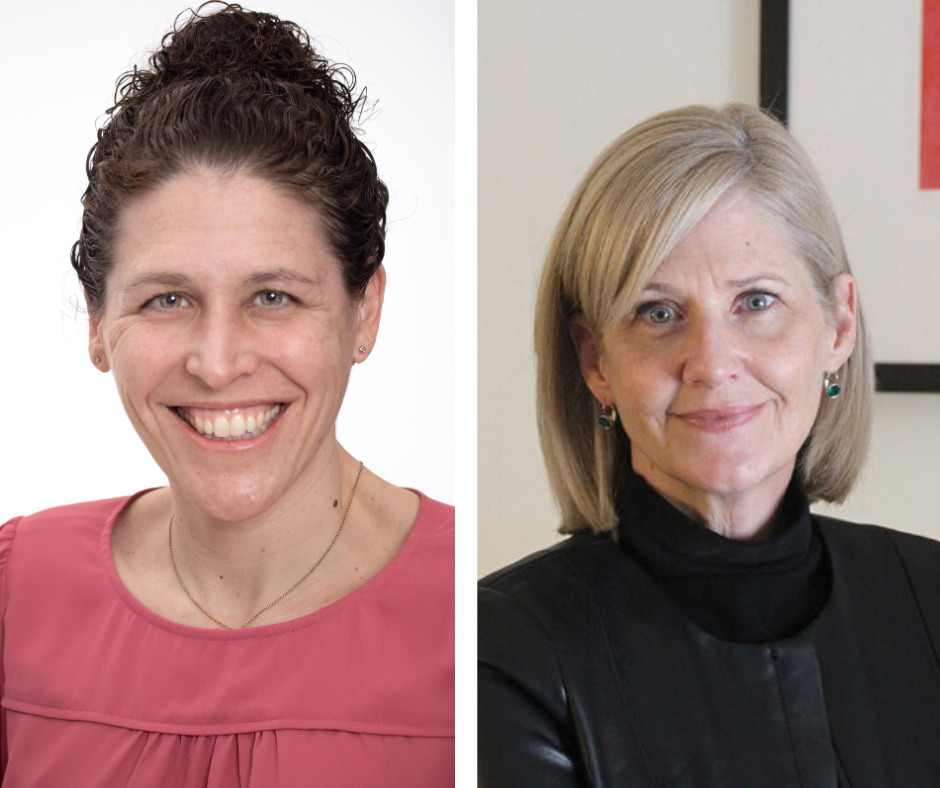Improved services and supports are needed to help youth transition out of foster care, say co-directors of the Fraser Mustard Institute for Human Development Policy Bench
Categories: Barbara Fallon, Faculty, Fraser Mustard Institute for Human Development Policy Bench, Leadership, Research
Ashley Vandermorris (left) and Barbara Fallon are Co-Directors of the Fraser Mustard Institute for Human Development Policy Bench.
On October 28, Co-Directors of the Fraser Mustard Institute for Human Development Policy Bench, Barbara Fallon and Ashley Vandermorris, testified to the Senate Committee on Human Rights on the topic of youth aging out of foster care.
A professor at the Factor-Inwentash Faculty of Social Work, Fallon holds the Canada Research Chair in Child Welfare and has spent the past 25 years researching the needs and trajectories of children and families in the child welfare system. Vandermorris is a staff paediatrician in the Division of Adolescent Medicine at The Hospital for Sick Children (SickKids), where her work focuses on youth confronting intersecting structural vulnerabilities. She also serves on the board of directors of the Canadian Coalition for the Rights of Children.
“Children in foster care do have an equal right to access the supports they need to thrive and succeed,” said Professor Fallon in her opening statement. “This is even more important during the critical period in which they transition into adulthood.”
 Fallon and Vandermorris’ testimony drew on a 2020 Policy Bench report on children aging out of care [PDF]. Commissioned by the Ontario Ministry of Children, Community and Social Services, the report included a literature review with a focus on policies and programs that might improve outcomes for children and youth in foster care.
Fallon and Vandermorris’ testimony drew on a 2020 Policy Bench report on children aging out of care [PDF]. Commissioned by the Ontario Ministry of Children, Community and Social Services, the report included a literature review with a focus on policies and programs that might improve outcomes for children and youth in foster care.
Canada does not have a national standard or guidelines for youth leaving care, stated Fallon and Vandermorris in their joint testimony. Moreover, there has been little research on culturally informed, evidence-based interventions to support them. As a result, Canadian youth transitioning out of foster care are at risk as they continue to confront challenges and hardships on the road to full independence.
“Access to supports and services for youth leaving care is based on legislated age cut-offs regardless of the individual’s developmental readiness and financial or emotional ability to make the transition to independence,” said Vandermorris. “A more flexible approach to aging out that is not based on specific age cut-offs would be more developmentally appropriate.”
The Policy Bench co-directors argued that early evidence shows that extending support to youth until they are actually developmentally ready to live independently may result in better outcomes — not just for the youth themselves, but for society as a whole.
“Improved services and supports are needed to help youth successfully navigate this process, promoting more positive trajectories into adulthood,” Fallon said.
A joint initiative between the Factor-Inwentash Faculty of Social Work at the University of Toronto and SickKids and housed in the Edwin S.H. Leong Centre for Healthy Children, the Fraser Mustard Institute for Human Development Policy Bench brings together leaders with transdisciplinary expertise to support optimal human development and health equity across the life course. Its work strives to ensure that policies relevant to child development are based on the latest evidence across a multitude of disciplines – including health, psychology, social work, education, economics, and medical sciences.